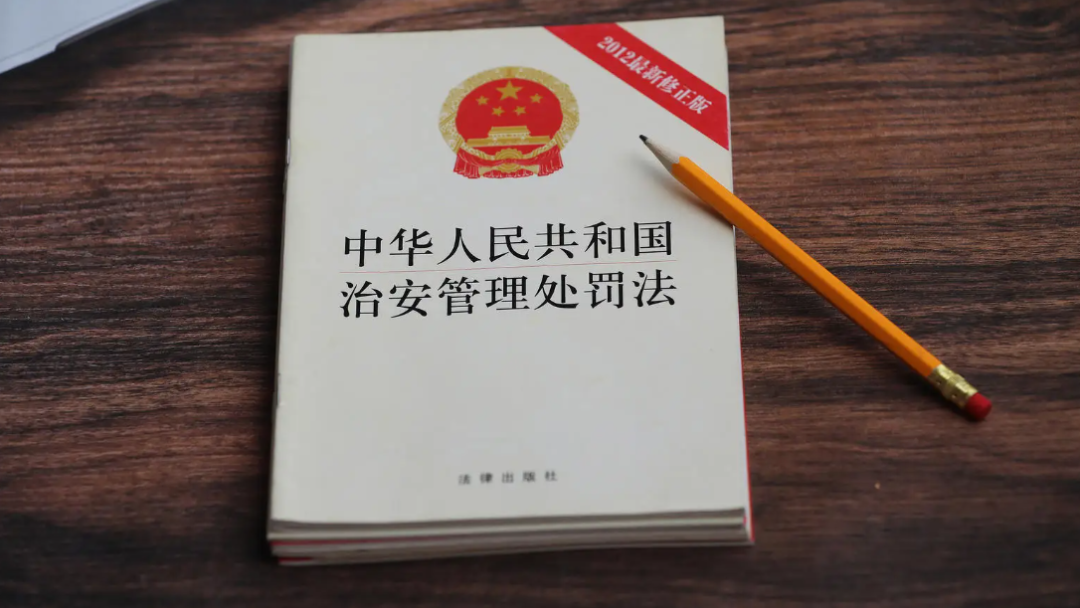
On June 27, 2025, China’s top legislature passed a major revision to the Public Security Administration Punishment Law, marking the biggest reform in nearly two decades. The new law—expanding from 114 to 144 articles—will take effect on January 1, 2026, introducing sweeping updates to address new social challenges, from online misconduct to campus bullying and drone misuse.
Here are the nine biggest changes you need to know:
1. Self-Defense Officially Protected — “Fighting Back” Is No Longer a Crime
For the first time, the concept of legitimate self-defense (正当防卫) is written into the law.
In the past, victims who defended themselves were often punished alongside their attackers — the “mutual fighting” problem.
Under the new law:
"Acts committed to prevent an ongoing unlawful infringement, causing certain damage, do not constitute a public security violation and will not be punished."
If the defensive act clearly exceeds the necessary limit and causes serious harm, punishment can still apply — but should be reduced or waived depending on the circumstances.
Police are now required to collect evidence and determine the initiator of violence, ending the practice of “both sides punished equally.”
2. School Bullying: From School Autonomy to Police Involvement
The law now makes anti-bullying enforcement a joint responsibility between schools and police.
Police Role:
Officers must investigate and penalize students who engage in violent, humiliating, or intimidating acts — and apply correctional education where appropriate.
School Responsibility:
Schools that fail to report or handle serious bullying incidents will be ordered to correct their actions, and responsible administrators will be held accountable.
This marks a major shift from passive “school-level mediation” toward an active, system-wide “police + school” coordination mechanism to tackle youth violence.
3. New Offenses for New Social Risks
The updated law fills several long-standing legal gaps, addressing previously unregulated behaviors that threaten public safety and social order:
High-altitude object throwing:
Punishable even when no injury occurs, forming a “step-ladder” system with the criminal offense of causing serious harm.
Illegal drone flights (“black flights”):
Police are now empowered to investigate and penalize unauthorized drone operations that disrupt airspace or public safety.
Forcing minors to accompany or entertain customers:
Bars, karaoke clubs, and entertainment venues coercing minors into paid companionship will face strict penalties.
Aggressive or dangerous dog ownership:
First offense → Warning
Failure to correct or if injury occurs → Up to 5 days’ detention or ¥1,000 fine
Serious cases → 5–10 days’ detention
These clauses aim to plug loopholes exposed by incidents ranging from drone interference to dog attacks.
4. Stricter Oversight on Law Enforcement — “Power Under the Sun
To prevent abuse of power and arbitrary punishment, the revised law introduces a comprehensive procedural reform for police actions:
Mandatory recording:
All interrogations, on-site checks, and single-officer enforcement must be audio- and video-recorded.
Clear identification:
Enforcement credentials are now standardized as “People’s Police ID” — no other form of identification is acceptable.
Limited single-officer actions:
Single-person enforcement is only allowed under special, justified circumstances.
Legalized mediation:
Mediation must follow lawfulness, fairness, voluntariness, and timeliness — giving citizens more protection from forced settlements.
These measures ensure that law enforcement is traceable, reviewable, and accountable.
5. Expanding Scope to the Digital Era
The revised law explicitly covers digital-age misconduct and social governance blind spots:
Newly added offenses include:
Disrupting public order: cheating in exams, organizing pyramid schemes, desecrating or insulting national heroes.
Endangering public safety: manipulating vehicle controls while driving, illegal drone operations, throwing objects from buildings.
Infringing personal rights: abusing people under care, leaking citizens’ personal information.
Obstructing social management: coercing minors to work in entertainment venues, running unlicensed or unsafe businesses.
This comprehensive coverage reflects China’s push to adapt public order law to internet-era challenges and new forms of misconduct.
6. Transparency in Policing — “Installing Cameras on Power
Procedural justice has become a defining theme of the new law.
Four key safeguards act as a “multi-layer monitor” over law enforcement:
1. On-site seizures must be fully recorded.
2. Police identification must be clearly displayed.
3. Solo enforcement restricted to exceptional circumstances.
4. Mediation principles explicitly defined to ensure fairness.
These reforms increase transparency and reduce the risk of misconduct, ensuring that citizens’ rights are better protected during interactions with law enforcement.
7. Harsher Penalties for High-Risk Businesses
Previously, the law’s main tools were warnings, fines, detentions, and license revocations.
The new version adds two new administrative penalties:
Order to suspend operations
Ban on reapplying for licenses for 1–3 years after revocation
This is designed to raise the cost of illegal activity in entertainment, nightlife, and high-risk industries, especially those repeatedly involved in drug use, prostitution, or public disturbances.
8. Improved Statute of Limitations — Giving Justice a Second Chance
The law extends the time window for victims to seek justice.
Previously, public security violations discovered more than six months after the act could not be punished.
Now, if a victim reported within the time limit but the police failed to handle or accept the case, the time limit no longer applies.
This clause ensures accountability and encourages law enforcement agencies to act promptly — preventing “justice delayed is justice denied.”
9. Record-Sealing System — Helping People Move On
In a long-awaited move, the new law introduces a record-sealing mechanism for minor public security violations.
Sealed records cannot be disclosed to individuals or organizations.
Only authorized state agencies can access them for investigative or official purposes.
Agencies conducting inquiries must maintain strict confidentiality.
This provision allows individuals with minor offenses to reintegrate into society without permanent stigma — balancing security with compassion.
Source: China





 京公网安备
京公网安备